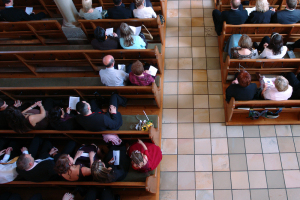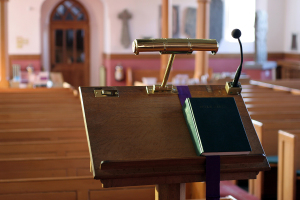Int'l Policy Watchdogs Call U.N.'s 'Defamation of Religions' Dangerous
Religious freedom and human rights groups are protesting a U.N. resolution on defamation of religions that could be used to justify anti-blasphemy laws and restrict freedom of expression, belief, and press.
Since last week, a letter has been circulating around the world among rights groups seeking the signature of those opposed to the resolution. Critics argue that the "combating defamation of religion" concept has no validity in international law.
The resolution, created by members of the Organization of the Islamic Conference (OIC), explains the concept of defamation of religion in a way that could be manipulated to "silence and intimidate human rights activists, religious dissenters, and other independent voices," the letter warned.
U.K.-based Christian Solidarity Worldwide signed the statement on Wednesday, which had already been signed by 186 other non-governmental organizations from more than 50 countries.
Among the first signers were Freedom House, The Becket Fund for Religious Liberty, the International Humanist and Ethical Union, and U.N. Watch.
The resolution comes at a critical time for the United Nations, which is preparing for the upcoming "Durban Review Conference" in Geneva this April. The conference is a follow-up to the 2001 World Conference against Racism, held in Durban, South Africa.
There is concern that the Review Conference will be used to legitimize a "defamation of religion" agenda, supported by the 57 members of the Organization of Islamic Conference.
"We are concerned that the motivation behind these annual resolutions on defamation of religion, and the aspiration to push this agenda at international conferences is not driven by a desire to protect religious believers," said CSW's chief executive, Mervyn Thomas.
"Rather, we believe these resolutions can be used to protect states from the legitimate criticism of human rights defenders," Thomas continued. "They may also be used to justify blasphemy, anti-conversion and apostasy laws.
"CSW therefore urges member states to reject such texts and to seek the protection of religious believers through existing international human rights law."




























